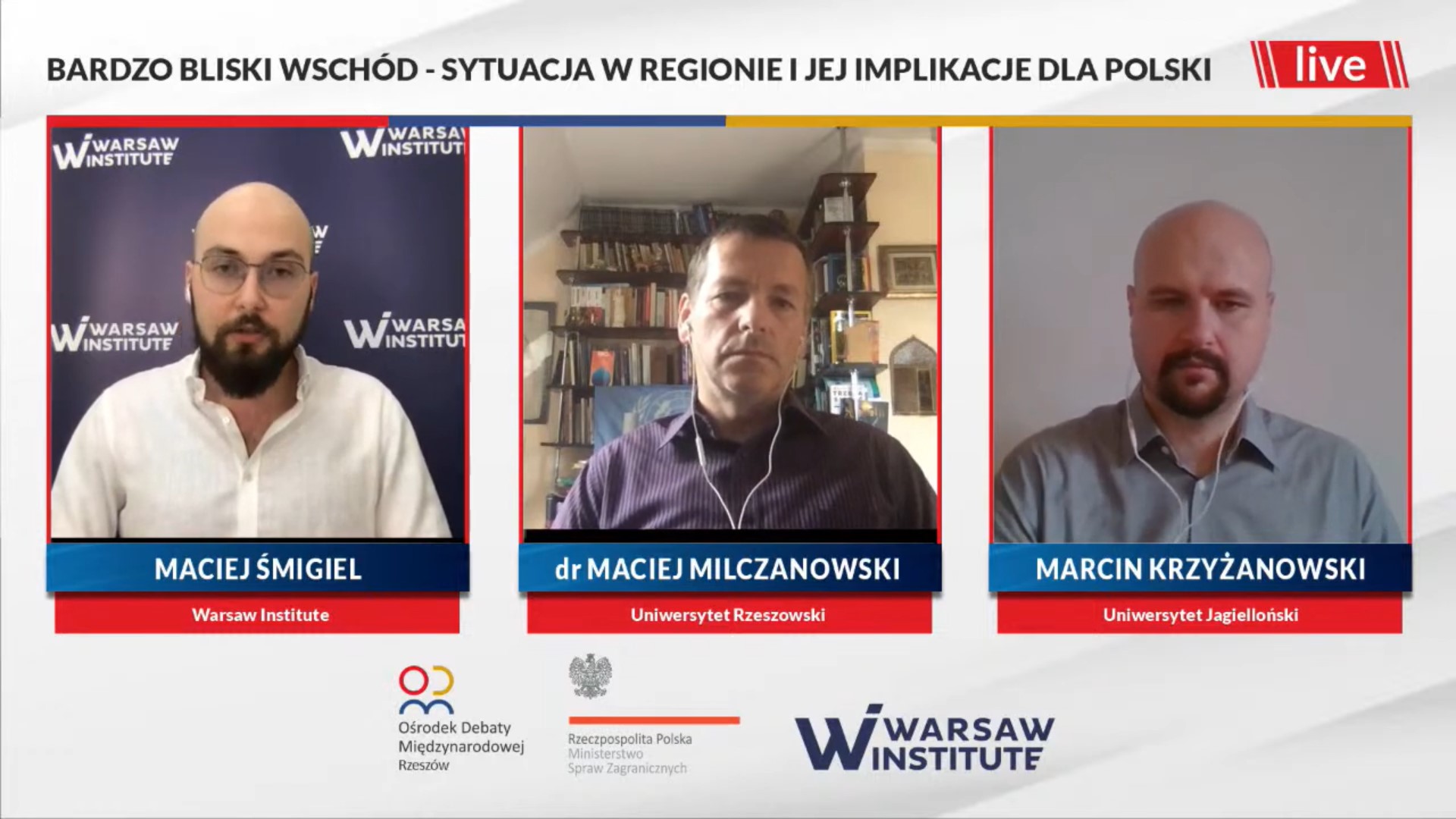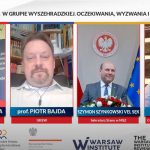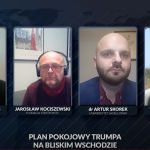EVENTS
Date: 26 June 2020
Summary: The More-than-a-Middle East – the situation in the region and its implications for Poland
Efforts for peace in the Middle East again require radical strengthening and only firm actions taken by the international community will bring the possibility of lasting stability in this interesting, yet troubled region of the world. Polish foreign policy is bounded with many obligations towards its both economic and political partners. Seemingly, events in the Middle East are distant for Poland and Central Europe, however, due to the great importance of these mechanisms for building international (formal and informal) agreements, it turns out that the interests of Polish partners in the Middle East mean that any geopolitical phenomena cannot be treated as neutral from the perspective of Polish raison d’etat, because according to the eternal principle, alliances allow the country to maintain security while generating expectations of all parties. That is why the thesis that the Middle East, not in geographical but in political terms, is in fact a The More-than-a-Middle East for Poland is more than justified.

In an online debate organized in cooperation with the Ministry of Foreign Affairs, the Warsaw Institute and the Regional Center for International Debate, which took place on 25th June 2020, the invited guests spoke about these geopolitical phenomena, dynamics in the region and their impact on the current situation of Poland. The invited experts were:
– Dr Maciej Milczanowski – PhD in political science, lecturer at the University of Rzeszów, former soldier of the 21st Podhale Rifles Brigade, veteran of the UN mission on the Golan Heights in 1997/1998 and the stabilization mission in Iraq in 2005/2006. Trainer in the Heroic Imagination Project by prof. Zimbardo, with whom he works through the Zimbardo Conflict Resolution Center, also served as a professor’s assistant in lectures. He is a graduate of the College of Officers of the Communications Army in Zegrze (engineer’s and second lieutenant’s degree), the National Defense Academy (master’s degree) and the Jagiellonian University (PhD); he is also a holder of the Hoover Institution scholarship at Stanford University and an expert of the Pulaski Foundation. He is the author of the book “The art of building peace”.
– Marcin Krzyżanowski – expert on the Middle Eastern affairs, Consul of the Republic of Poland in Kabul between 2008-2011, a graduate of the Institute of Middle and Far East in the Jagiellonian University, he also graduated from the Arabic Learning Institute in Damascus, orientalist, afghanologist, cultural expert, entrepreneur (international business practitioner) and also a traveler.
The meeting was moderated by Maciej Śmigiel – expert and project coordinator at the Warsaw Institute, PhD candidate of Arabic Studies at the University of Warsaw.
Invited experts presented mechanisms on the basis of which the Middle East significantly determines the economic and political reality in Poland and the whole Central Europe. They also emphasized that Polish reaction to the events in the More-than-a-Middle East cannot be considered in isolation from Poland’s relations with Western European countries. Debate’s guests pointed out that the White House’s geopolitical decisions regarding the Middle East are extremely important and there is no doubt about it, but they recommended caution in reducing the importance of Middle East issues for Poland to describe geopolitical reality in the form of bilateral relations between Warsaw and Washington. Dr Maciej Milczanowski, among others, pointed out the complexity of the issue of long-term policy in the Middle East by important geopolitical players.
He argued that the strategies of such international policy entities tend to be too volatile, which is influenced by the specificity of the functioning of their own systems, especially the term-of-office of the authorities. In his speech Marcin Krzyżanowski emphasized, among others, an aspect of Iran’s political traditions that since ancient times aspired to play the role of the region’s largest power, and its activities often boil down to the desire to defend its own territory and geopolitical influences.
It was the second joint event of the Ministry of Foreign Affairs, Warsaw Institute and one of the Regional Centers of International Debate in the form of an online expert debate, which is organized regularly every week on Thursdays at 18:00 on the MFA internet communication channels and on Facebook’s page of the Warsaw Institute and Regional Debate Centers.
All texts published by the Warsaw Institute Foundation may be disseminated on the condition that their origin is credited. Images may not be used without permission.
















